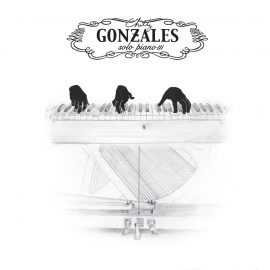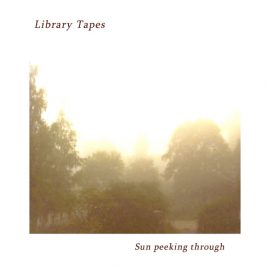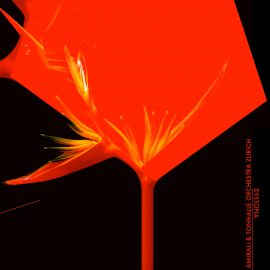Djrum
Under Tangled Silence
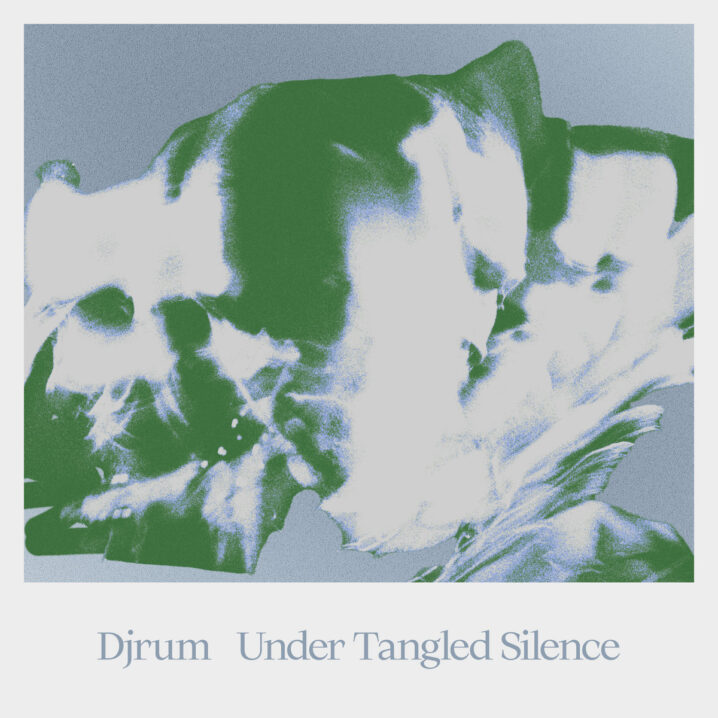
After his Meaning’s Edge, released in November of 2024, and a few teaser singles, Djrum returns to the London-based Houndstooth imprint [an offshoot of Fabric curated by Rob Booth]. I’ve highlighted the EP mentioned above on these pages before, but I’ve never properly covered this genre-defying electronic music producer in detail, so here we go. Felix Manuel comes from a classical piano background mixed with a tint of jazz, as evident in his very musical and playful compositions [although I can’t tell for a fact if the fluttering piano chord walks on some of these pieces is really played live or just MIDI-sequenced notes with a bit of trickery]. Regardless of the production and execution process (we’ve all publicly praised and accepted Computer Controlled Acoustic Instruments by Aphex Twin), the music on Under Tangled Silence is sparkling with whimsical intelligence, which is triggering every neuron in my wit-hungry mind. I haven’t been this excited about such a perfect fusion of genres since Venetian Snares‘ Rossz Csillag Alatt Született, and that album, folks, is now 20 years old! Jump over to “L’Ancienne” and hear what I’m talking about. Dive further, deeper into the album, and you will find ambient meditations with elements of oldskool jungle sprinkled among acid house and dancehall of the future past. “And all of those elements are more integrated than ever, too: the sound of a total musical personality emerging afresh is truly something to behold.” This is a flawless album that will demand numerous rotations and will undoubtedly age well throughout the decades. Thankfully, it’s permanently stamped into a gorgeous limited edition coke-bottle-green vinyl (if you can still find it) or a standard 2×12″ LP. It’s all extremely diverse yet very fitting and well put together. And yes, I get it. It’s very clever. “How is that working out for you?” asked Tyler Durden once. “What?” asked the narrator. “Being clever.” Well, it’s great. “Keep it up then.”
Billow Observatory
The Glass Curtain
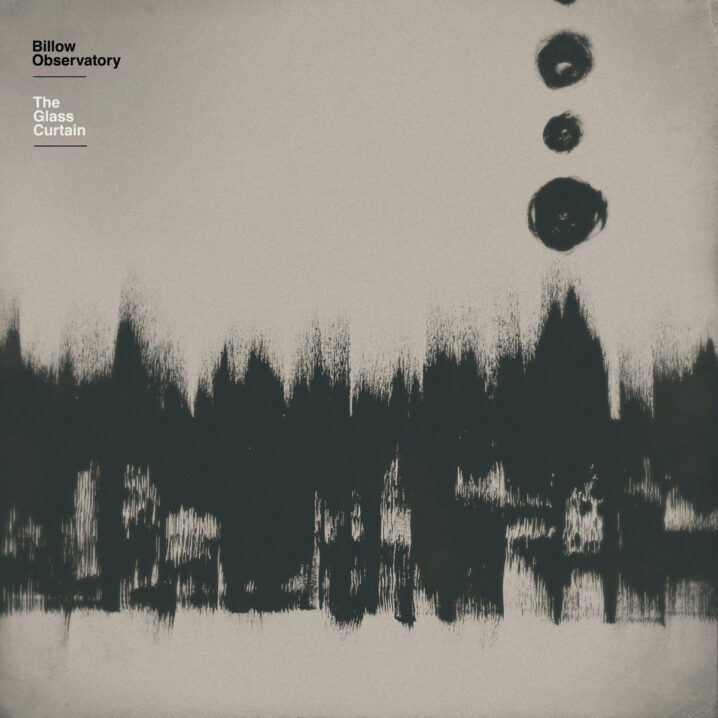
There are times when you search for that something, and then, there are times when that something decides to find you. Being open to any experience, and indeed, the unfolding of reality, is the way to allow things to evolve in the only way that they can, without the turmoil and inner resistance. The resistance will only bring anger and stress. Nothing more. The acceptance will bring peace and a smile. I often secretly smirk at how things turned out, and if only I had been more aware of my past defiance, I could have been simply there to observe. I am reminded of this when I read my review of the debut album from Billow Observatory. Was it now thirteen years ago when I first heard its beauty? Did I even know that I’ll be sitting here and hearing again? I want to think I did. I’d like to believe that although I cannot shape the future, it turns out in the only one way that it can. Yes, you may call this approach [soft] determinism, Stoicism, or Taoism… the acceptance of the inevitable with kindness and grace. The duo of Jonas Munk and Jason Kolb know and embrace this. With a soft and wide brush, they paint an ambient soundscape where spectral guitars rise, flitter, and crackle into dusty particulates, unconcerned with linear time or tidy resolution. Each track erases the clock, inviting us to float in a dream where slowly spinning worlds tilt slightly, subtly, a bit off axis. In an increasingly anxious society, this music offers a quiet rebellion through introspection and texture. It doesn’t shout; it suggests. It doesn’t explain; it evokes. Pensive, mysterious, and captivating, the album feels like a mirror held up to the soul in the early mornings, when the light is soft enough to see what’s there. Listening becomes an act of acceptance, extending with music throughout the universe, in an unstoppable, omnidirectional, and irreversible ride. The album is available on a limited edition CD in a 4-panel digipak, yellow colored vinyl, and, of course, digital, on the duo’s Bandcamp. I recommend you also pick up Soliton and Calque EPs.
Peter Gregson
Peter Gregson
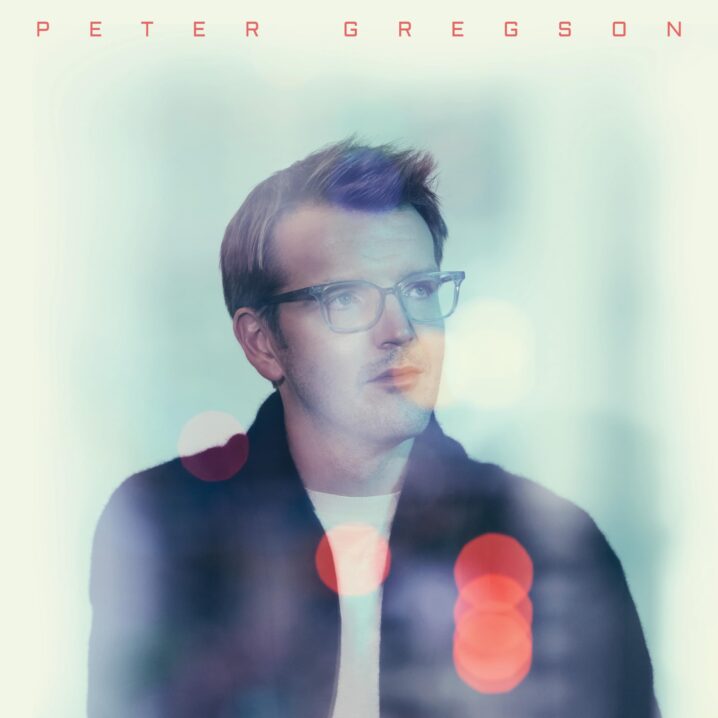
London-based Peter Gregson has been one of my favourite cellists for a while now. After so much contribution to many other albums, scores and interpretations, it was a pleasure to discover his voice through solo work, most notably of which for me became Patina (Deutsche Grammophon, 2021). Now, this award-winning composer is back with a self-titled album, interleaving his signature cello sound with modular synth manipulations, describing the music as “the closest to what I hear in my head that I’ve ever reached“. For me, it’s a perfect culmination of that modern classical sound with that of neo-electronica, where the organic sound is processed perfectly through its synthesised counterpart, among the beautiful melodies and harmony. As is the case with most modular systems, Gregson has selected his arsenal of modules (samplers, sequencers, but no oscillators) to create his ideal effects chain: “so everything that runs through it is a cello, and everything that comes out of it was created on a cello.” Fans of Max Richter, Ólafur Arnalds and of course, the late Jóhann Jóhannsson, will appreciate the cinematic soundscapes, soaring strings, and the subsonic bass, appearing on the album. But, once again, I want to bring your full attention to the music shared within. It’s not just an advanced, layered, well-defined recipe, expressed so much within contemporary electronic music in recent years, where young blood tends to chase and replicate the trends. It’s an offer of the composer’s own soul, where every piece tells a story, presented in an intimate and modern setting in which each element is placed just right, from the effects, dynamics, and progression, the way a composition truly puts its mark on the evolution of the sound. Leave it to the US-based Decca to capture and present this release on vinyl. You can also watch a video for the first single, following Gregson through the streets of NYC.
